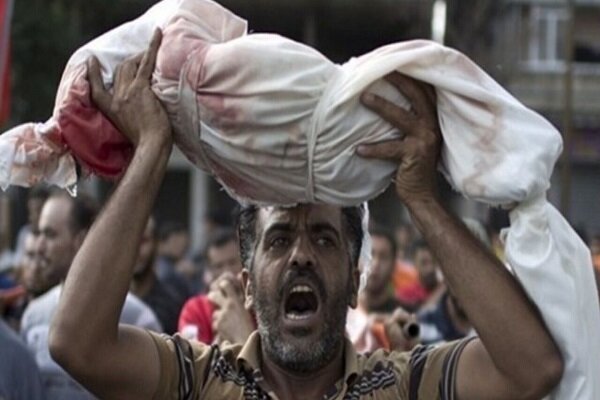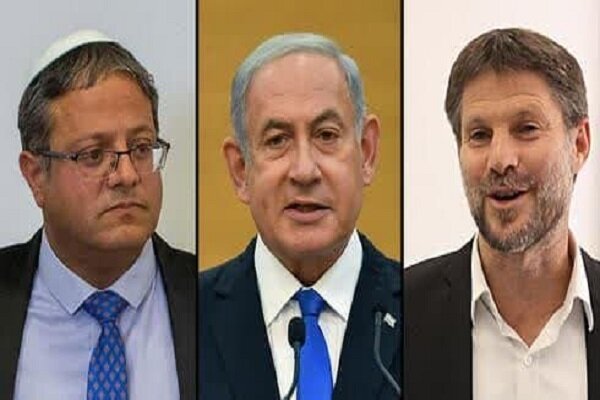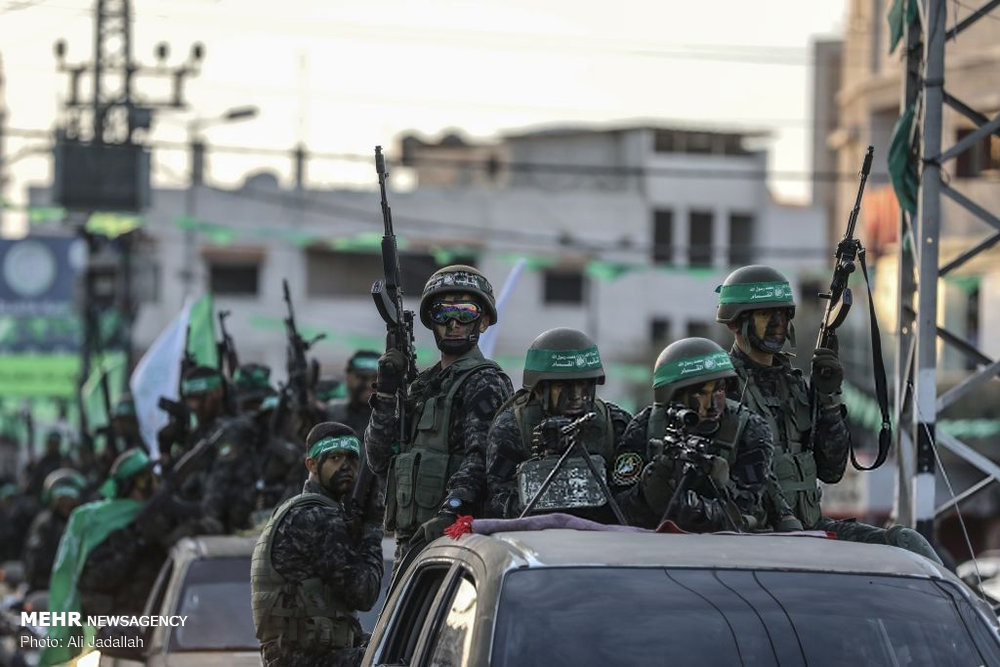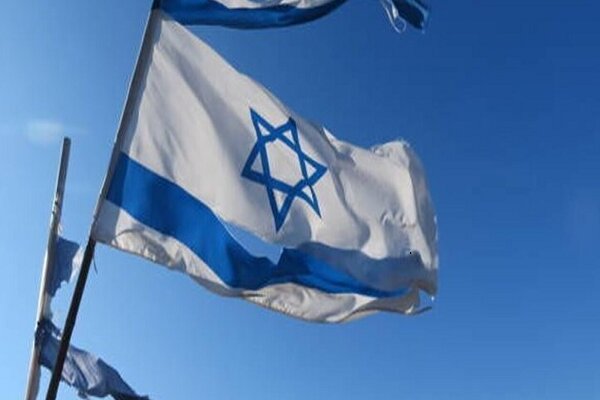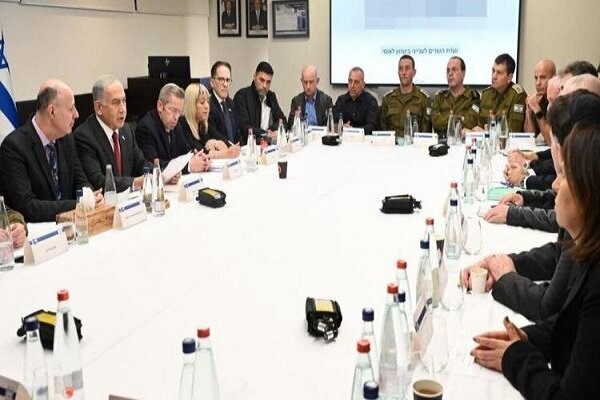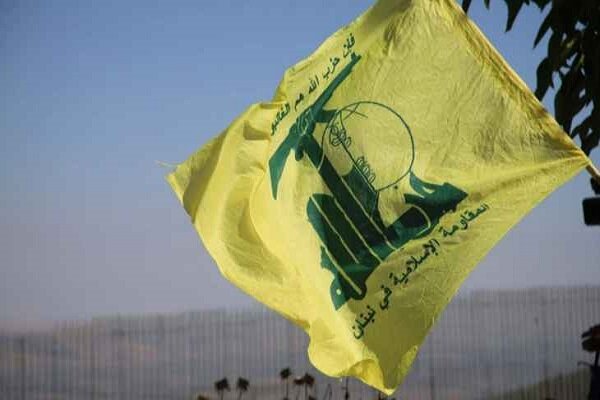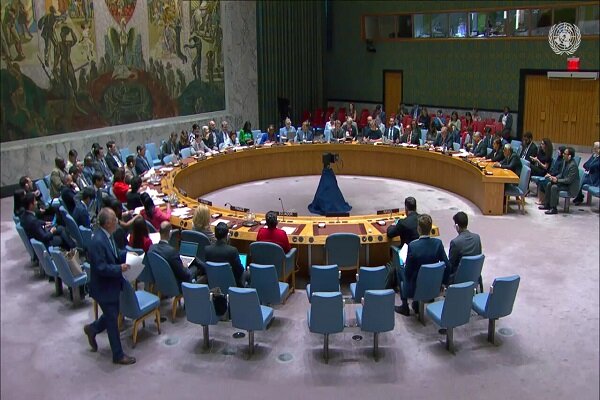One year of Al-Aqsa storm operation; Why and strategic consequences

Mehr News Agency, International Group: Al-Aqsa storm operation has reached one year. On the one-year anniversary of this operation, the important question is, basically, why did the fighters of Hamas plan and execute the Al-Aqsa storm and what were the consequences of this operation?
1. Why do al-Aqsa Storm
October 7, 2023 is the day of Palestinian uprising against the occupation regime of Jerusalem. On this day, Hamas fighters attacked the occupied territories from land, air and sea, while the Gaza Strip was under siege by the Zionists for 17 years since 2006. On October 7, Hamas fighters dealt a blow to the military and intelligence prestige of the Zionist regime, which has never been seen in the 75-year history of this regime.
Hussein Royuran, an expert on Palestinian issues, says about the importance of Al-Aqsa Storm: This operation has violated several red lines of the Zionist regime. The first red line is the loss of life, which was high for the Zionists, the second red line is the security of its capital, which is Tel Aviv, is endangered, and the third red line is questioning the intelligence and military credibility of the Zionist regime. According to these conditions, many and important reasons can be raised regarding the causes of Al-Aqsa storm, but the most important reasons can be stated in the following axes.
A: The situation in Gaza had become unbearable
The fake Zionist regime, which was established by occupying the geography and territorial integrity of the Palestinians, made life more difficult for the Palestinians day by day and imposed unbearable human conditions on them. . Occupation continued in the form of numerous and repeated settlements. As a result of settlements, more Palestinians were forced to leave their land and homes, the blockade of Gaza imposed heavy pressure and deprivation on the people of Gaza, Gaza became the world’s largest open-air prison for 17 years, and even patients had to find a way out for treatment. They did not have this prison, sending humanitarian aid, especially medicine, to Gaza was either impossible or rarely done.
Nasser Abu Sharif, the representative of Palestinian Islamic Jihad in Tehran said: “The 17-year siege of the Gaza Strip is This area has been besieged for 17 years and aid is being provided drop by drop so that the people can only survive. Regarding the social and economic situation, 60% of Palestinians living in Gaza are unemployed, and 40% are children and teenagers. The Zionist regime also imposed repeated wars on the Palestinians, especially the people of Gaza, which has resulted in thousands of martyrs and wounded and millions of displaced people. After the Al-Aqsa storm, Hamas stated in a statement that one of the reasons for carrying out this operation was the imposition of these wars and declared: “The Gaza Strip suffered from five devastating wars, and each time Israel was the initiator.” From 2000 to September 2023, the occupying regime martyred 11,299 Palestinians and injured 156,768 others, most of whom were civilians.
B: Al-Aqsa storm was an operation for “existence”
In addition to the harsh humanitarian conditions that the Zionist regime imposed on the people of Gaza, this regime had become an “existential” threat to the Palestinians. The occupation did not stop during 75 years, but they even moved towards the complete occupation of the Palestinian land. Itamar Ben Guer, the Minister of Internal Security, and Smutarij, the Minister of Finance of the Zionist regime, are among the people in the new cabinet who even believe that Palestinians should have a second homeland and be completely expelled from Palestine. Meanwhile, the Zionist regime intensified the Judaization of Jerusalem.
Beit al-Maqdis is the religious and historical identity of the Palestinians, but the Zionists did not spare any effort to make it Jewish. The Zionists moved step by step to destroy the goal of establishing an independent Palestinian state. In this regard, the statement of Hamas about the reasons for the implementation of the important Al-Aqsa storm operation states: “The Al-Aqsa storm operation is a necessary step and a natural response to face the plans designed to destroy the Palestinian issue. The Al-Aqsa storm was carried out to counter Tel Aviv’s plans to dominate the Palestinian land and exercise its sovereignty over the Al-Aqsa Mosque. The Al-Aqsa storm was a necessary step to end the cruel siege of the Gaza Strip and is a natural step in the framework of liberation from the occupiers.”
C: The establishment of the most extreme cabinet in the occupied territories
In 2022, after holding elections 5 times since 2019, Benjamin Netanyahu’s new cabinet took office with the participation of radical, extremist and racist people. With the establishment of the extremist and racist cabinet of Netanyahu in 2022, the pressure on the Palestinians has increased greatly. The inauguration of the most extreme, racist and extreme cabinet in the history of the Zionist regime led by Benjamin Netanyahu in 2022, i.e. one year before the Al-Aqsa storm operation, became an important motivation for the Al-Aqsa storm. This cabinet, which even according to the White House officials, was the most extreme cabinet in the history of Israel, from the first day it took office with its anti-Palestinian and anti-Islamic policies and measures, which were clearly racist and cruel, started persecuting the Palestinian Arabs. and Muslims in the occupied Kurdish lands.
When this government took office, the volume of tensions between Palestinians and Zionists increased in an unprecedented way. Every day the violence against Palestinians in their homeland increased. On the eve of Al-Aqsa storm, in the neighborhood of Sheikh Jarrah in Quds, new clashes took place every day between Palestinians who refused to sell their houses to the Zionists and Israeli agents.
The Zionist regime forced the residents of these houses to evacuate their homes under the pretext of city development. In Netanyahu’s extreme cabinet and with the support of hard-line ministers such as Itmar Ben Guer, the oppression of the Zionist settlers, who are among the most criminal and hateful people, reached a peak against the Palestinians. These crimes raised the determination of Hamas fighters to carry out the Al-Aqsa storm operation. Therefore, Palestine and especially the Gaza Strip was practically uninhabitable on the 75th anniversary of the occupation by the Zionists. What the fighters of Hamas have done was a clear example of legitimate defense specified in Article 51 of the United Nations Charter.
D: The desperation of the Palestinians from the international community for justice and implementation Justice
The world system has practically failed in confronting the crime of the Zionists and defending the rights of the Palestinians. The war and the comprehensive siege of Gaza did not cause the United Nations and the world powers to come to their senses to defend human rights in Gaza and take action to stop the numerous crimes committed by the Zionists. The performance of international organizations and institutions towards the Palestinians and ignoring the flagrant violation of human rights by the Zionist regime, which even took away the “right to life”, which is one of the obvious and inviolable human rights, from the Palestinians, is a clear example of discrimination in the implementation of human rights by the organizations It was international and world powers. Meanwhile, important crimes such as forced displacement and exile, expulsion from the land and homes, destruction of homes, destruction of employment opportunities, preventing the entry of medicine and food into Gaza, murder, deliberate starvation, etc., took place against Palestinians.
Not only did the world powers not pay attention to the human rights of the Palestinians, they also took various measures to secure the interests of the Zionists. Donald Trump, the former president of the United States, pursued and implemented the racist plan of the deal of the century and then the plan to normalize relations between Arab countries and the Zionist regime. Therefore, not only was no action taken in defense of the Palestinians by the powers that claim human rights, but the Zionist regime was taken out of its security and political isolation and the Palestinian issue was marginalized and discredited by these powers and with the support of some countries. Arabic was followed. This situation was also one of the important reasons for the execution of Al-Aqsa storm. In fact, the Palestinians came to the conclusion that in order to save Palestine, they must take a fundamental action against the Zionists.
2. Consequences of a year of war against Gaza
Many things can be mentioned about the consequences of Al-Aqsa storm, but the most important consequences can be expressed at three levels: domestic (for the warring parties), regional and global.
Consequences for the warring parties
One year of war in Gaza has had important consequences for Hamas and the Zionist regime. These consequences for the Palestinian Islamic Resistance Movement (Hamas) are as follows:
A: Genocide by the Zionist regime in Gaza
In the last year, the occupation regime of Jerusalem has killed more than 42 thousand Palestinians and injured more than 96 thousand people. More than 2 million Palestinians are displaced in Gaza. Poverty, hunger and disease have also spread in Gaza. These unfortunate events occur while Gaza has been under complete siege since 2006, that is, for 18 years. Undoubtedly, the martyrdom and injury of about 140 thousand people, at least a third of whom are women and children, will be a great blow to the Palestinian families.
B: destruction of infrastructure
Another consequence of the one-year war for Hamas is that the Zionist regime has completely destroyed the infrastructure of Gaza. Medical centers and hospitals, schools and houses, IDP camps, roads, etc. have been destroyed due to daily bombardment and the use of prohibited bombs. The reconstruction of these infrastructures imposes a lot of cost on Hamas.
A: The martyrdom of many Hamas commanders
Another consequence of the one-year war for Hamas was that the Zionist regime assassinated Hamas commanders and killed a large number of military commanders and political leaders of the Hamas movement. has testified One thing that should be pointed out about the Hamas movement is that despite the blows that this movement has suffered in the past year, it is still alive, it continues its activities, it enjoys the support of the people, and it is the way to fight and resist the Zionists. continues The action of Yahya al-Sanwar, the leader of Hamas, in sending a message to the leaders of the resistance and some countries and commending them for supporting Palestine can be evaluated in this regard.
D: The return of the Palestinian issue to the world agenda
One of the important consequences of the one-year war in Gaza for Hamas and the Palestinians is that once again the issue of Palestinian rights has returned to the center of attention and regional and global reactions. The war created a diplomatic challenge for Israel. While until the Al-Aqsa storm, the Palestinian issue was being forgotten or at least becoming a marginal issue, a year of war and unprecedented violence by the Zionists caused the Palestinian issue to once again become one of the main agendas of the world system. Countries such as Algeria and South Africa have raised the case of Zionist crimes in the International Criminal Court and the International Court of Justice, and these courts are investigating the crimes of the Zionists. The issue of the establishment of an independent Palestinian state is being pursued more seriously at the global level than in the past, and even global public opinion has mobilized in support of Palestine in the heart of Europe and America.
Consequences for the Zionist regime
One year of war in Gaza has also had important consequences for the Zionist occupation regime, some of the most important of which are:
A: Failure to achieve the military objectives of the war
The occupying regime of Quds, which witnessed an intelligence and military failure with the occurrence of Al-Aqsa storm, and according to the Supreme Leader of the Islamic Revolution, an irreparable failure. The Guardian newspaper wrote in a report: “Films released by Palestinians show the collapse of walls and fences that have enclosed 2.3 million people in the Gaza Strip for the past 16 years, and these films that have been released have been unimaginable. In the meantime, other videos have been published that show Israeli forces under siege and with their hands and feet tied.” The editor of the Zionist publication “Jewish Chronicle” wrote in a post on the “X” social network: “Israel suffered a major military and intelligence failure.” I have never seen anything like this in my life.”
Hazrat Ayatollah Khamenei, the leader of the Islamic Revolution, also said: “In this matter, the usurping Zionist regime, both militarily and in terms of intelligence, is an extraordinary failure. corroded repairable; Everyone said failure, my emphasis is on irreparability. I say that this devastating earthquake has managed to destroy some of the main structures of the usurping regime’s governance, which cannot be rebuilt so easily. It is unlikely that the usurping Zionist regime will be able to restore those structures with all the hype it is doing, with all the support it receives from Westerners in the world today. I would like to say that since Saturday, the 15th of Mehr, the Zionist regime is no longer the previous Zionist regime, and the blow it received cannot be compensated for so easily.”
In addition to the defeat on October 7, the Zionist regime also witnessed a heavier intelligence and military defeat in a year of war. At the beginning of the war, this regime defined three specific goals for itself, which were: the release of Zionist prisoners, the destruction of Hamas, and the demilitarization of the Gaza Strip. After one year, none of these announced goals have been achieved. Basically, one of the main goals of Benjamin Netanyahu and his cabinet to resort to widespread violence and mass assassinations is to cover up this major military and intelligence failure during the year-long war against Gaza.
B: heavy military casualties
Although the Zionist regime has committed genocide in Gaza, many human casualties have also been imposed on this regime. The occupying army reported last August that the rehabilitation department of the war ministry of this regime receives more than 1,000 new wounded on average every month, and more than 3,700 Israeli soldiers are disabled. The Zionist army announced the death toll of more than 710 soldiers and officers until the 11th month of the war, although the number of Zionist casualties, according to the circles and media of this regime, is much higher than what the army declares. According to the statistics of the Ezzeddin al-Qassam Battalions, the military branch of the Hamas movement last February, more than 1,108 military vehicles of the occupying army have been destroyed by the resistance forces since the beginning of the war in the Gaza Strip.
C: heavy economic costs
Another consequence of the one-year war for the Zionist regime was that it imposed heavy economic costs on this regime. Zionist officials have estimated that the cost of the war will increase to about 66 billion dollars by the end of 2025, which is more than 12% of the gross domestic product of this regime. This estimate was based on Israel going to war with Hezbollah, not a full regional war. The 12-month budget deficit of the Zionist regime reached 3.8% of GDP in August. The fiscal gap for the entire year, excluding the Covid-19 pandemic, will be the largest fiscal gap of this regime in the 21st century. This month, the regime’s Ministry of Finance lowered its 2024 economic growth forecast from 1.9 percent to 1.1 percent.
In addition, the position of the Zionist regime in the economic ranking has also decreased drastically. Moody’s Ratings downgraded the regime for the second time this year, as the economic costs of the 12-month war in Gaza and a worsening conflict with Hezbollah have taken a toll on Tel Aviv. The rating company said in a statement that Israel is only three levels away from the “uninvestment grade”. Israel’s economic outlook also remains negative.
D: Publicizing political divisions within the cabinet and between the people and the cabinet
Another consequence of the war for the occupied Jerusalem regime was that the political divisions within the cabinet became public. Differences between Benjamin Netanyahu and Minister of War Yoav Galant have been revealed many times. Differences between the ministers, especially between Itamar Ben Guer, the hard-line minister of internal security, and other ministers have become public. The publicizing of the differences showed that even the war did not reduce the political divisions. In addition to this issue, a year of war not only did not prevent people from coming to the streets in the occupied territories, but the protests continued and even in the twelfth month of the war, more than half a million people held demonstrations against Netanyahu and his cabinet in Tel Aviv alone, and against war policies. The cabinet did not support and demanded the end of the war and the release of prisoners.
And: The unretouched face of the Zionist regime was revealed to the public opinion of the world
For several decades, the Zionist and Western media have tried to place the Israeli army as the most moral army in the world with false claims. They have tried to deceive the people of the world with media operations that Israel only attacks the military forces of the resistance, but the images of the crimes of this regime were transmitted to the world, which left no room for doubt for independent and free people. Even the most pessimistic, Western, and liberal people among the public believed that the barbaric actions carried out by the Zionist regime’s army had no precedent in history, so that a large number of Jews in the world and even the residents of the occupied territories were not assigned to this regime. They felt ashamed.
For example, “Avigail Barnall”, who is a Jewish activist and writer, announced in a video: “When I realized that the villain of the story is us, I revoked my Israeli nationality I did.” The world witnessed the formation of an unprecedented demonstration against the Zionist regime, a demonstration in which hundreds of thousands of people came to the streets even in the heart of Europe, and in America, students and university professors raised the flag of support for Palestine. This demonstration clearly proved that the public opinion of the world has seen the unretouched and criminal face of the Zionist regime.
Consequences of war at the regional level
A year of war against Gaza, in addition to internal consequences at the regional level, has also had important and strategic consequences, some of which are:
dir=”RTL” style=”text-align:justify”>
A: Turning the Palestinian-Zionist war into a multi-front war
All the wars that happened between the Palestinians and the Zionist regime in the past were Palestinian-Zionist wars. Unlike the previous periods of Palestinian-Zionist wars, when the Palestinians fought the enemy alone, this time the Palestinian resistance received the full support of the entire resistance axis. In addition to the Palestinian resistance, Lebanon’s Hezbollah on the northern front, the Yemenis from the Mediterranean Sea and the Iraqi resistance from the Persian Gulf targeted the Zionist regime with missile attacks in order to show the unity of the fields in the axis of resistance and to put pressure on this regime. give.
In this way, the occupying regime has been surrounded by resistance circles for the past year, and this multi-front conflict has forced it to deploy its forces between the south and distribute north. This situation has led to the evacuation of the northern settlements of occupied Palestine, especially the Upper Galilee, in addition to the settlements around Gaza, and the Zionists will taste displacement for the first time. Also, the occupied port of Eilat, which is considered a strategic economic zone for the Zionists, was also continuously exposed to missile and drone attacks by the resistance of Lebanon, Yemen and Iraq.
B: Direct confrontation between the Islamic Republic of Iran and the Zionist regime
One of the most important consequences of the one-year war against Gaza was that the Islamic Republic of Iran took military action against the occupied territories from its own territory. In the past one year, the Zionist regime tried many times to bring the Islamic Republic of Iran directly into the war, so that perhaps the United States would also be involved in the war, but the Islamic Republic of Iran adopted the strategy of “restraint and patience” so that the peace and security of the West Asian region is more than It does not face insecurity and war. However, the two crimes of the Zionists have resulted in two military actions by Iran against the occupied territories.
The attack on the Iranian consulate in Syria and the martyrdom of a number of Iranian commanders last April and the martyrdom of Ismail Haniyeh in Tehran and the martyrdom of Seyed Hassan Nasrallah and Sardar Nilfroshan in Beirut caused Iran should take direct military action against the occupied territories. The first action was merely a warning to Tel Aviv that Iran has the military capability to target the occupied territories.
On October 1, for the second time this year, Iran targeted the positions of the Zionist regime with 200 missiles. This time, Tehran used more advanced missiles in bombing Israeli positions and the attack was carried out without warning unlike in the past. In addition, Iran wanted to show that it is the only country in West Asia that faces the Zionist regime. The launch missiles showed Iran’s will and ability to attack the occupied territories and penetrate the defense systems of this regime in potentially destructive ways. Therefore, what happened is a major turning point in the one-year war in Gaza, as well as the security and stability of West Asia in the future.
While the Islamic Republic of Iran put the occupied lands under the rain of its “supersonic” missiles, the Zionist regime has nuclear weapons and this was the first time in the world that a A country that does not have nuclear weapons took massive military action against a regime that has nuclear weapons. The military action of the Islamic Republic of Iran, which according to reports targeted Mossad headquarters, Ashkelon gas platform, Navatim military base and even F-35 fighter jets, nullified the alleged new order of Benjamin Netanyahu, in which the resistance and Iran were weakened and had no place. He said that no order will be formed in West Asia without the prominent position of resistance and the Islamic Republic of Iran. Warning Supreme Leader In his Friday prayer sermons on the 13th of October, he also showed that the Islamic Republic of Iran does not shy away from a direct war with the Zionist regime.
The Supreme Leader of the Islamic Revolution pointed to the actions of the armed forces and noted: “What our armed forces did was the least punishment for the usurping regime in front of the astonishing crimes of the Greg Sefat regime. The American rabid dog was in the area. Whatever task the Islamic Republic has in this field, it will do it with strength, firmness and determination. We neither procrastinate nor rush. What is logical and correct from the point of view of political and military decision-makers was done and will be done in the future if necessary.”
Consequences of war at the global level
One year of war in Gaza has also had consequences at the global level, some of the most important of which are:
A: Discrediting the United Nations and especially the Security Council
The genocide of the Zionist occupation regime in Gaza and the crime against Lebanon, especially the dropping of 80 tons of bombs in one moment in the southern suburbs with the aim of assassinating the Secretary General and commanders of Hezbollah in Lebanon. The United Nations is unable to fulfill its main tasks, the right of veto is an important obstacle to stop crime and create peace, human rights have no meaning for Western powers, and there is a racist attitude in the implementation of human rights principles. A year of genocide by the Zionist regime in Gaza did not even face a UN Security Council condemnation resolution. The non-permanent members of the Security Council took the initiative to create peace and stop the Zionists’ crime against Gaza, but the repeated veto of the United States prevented the adoption of a serious resolution in this regard.
B: Change in America’s Middle East Strategy
One of the most important consequences of the one-year war against Gaza was that, while invalidating the human rights and normative claims of the United States, it caused a renewed increase in American attention to the region. became West Asia. In the past years, the United States tried to reduce its presence in West Asia and focus on East Asia and competition with China, but in the shadow of the escalation of war and tension between Iran and the Zionist regime, the United States increased its military presence in West Asia to support this regime. It has increased against the attacks of Iran and Hezbollah.
It is possible that if the confrontation between the Zionist regime, Hezbollah and Iran turns into an all-out confrontation, Washington will enter another battlefield in West Asia to support this regime; A war that will be different from all American wars in this region because the Islamic Republic of Iran has shown that it has both the courage and the ability to strike America and the Zionist regime. Although the US government is trying to avoid another costly military conflict in West Asia, it has so far proven unable to stop the Zionist regime. As the November presidential election approaches, the Biden administration acts like a “lame duck” and shows itself to be powerless against the strange speed of developments in West Asia.
Conclusion
The Al-Aqsa storm has reached one year old while the Supreme Leader of the Islamic Revolution continues to call it “a correct, logical, legal international movement” and in line with the Palestinians’ legitimate right to defend themselves. In contrast to the Zionist regime, they know. One year after the Al-Aqsa storm, West Asia witnessed Iran’s direct and severe military action against the Zionist regime in response to the crimes of this regime, and it seems that the developments in this region are still at a rapid pace and witnessed the continuation of the Zionist regime’s violence against the axis of resistance and possibly confrontation. Tel Aviv will be with the Islamic Republic of Iran; A confrontation that can show more clearly the vulnerabilities caused by the weak strategic depth of the Zionist regime.
Syed Razi Emadi; Expert on West Asian issues


